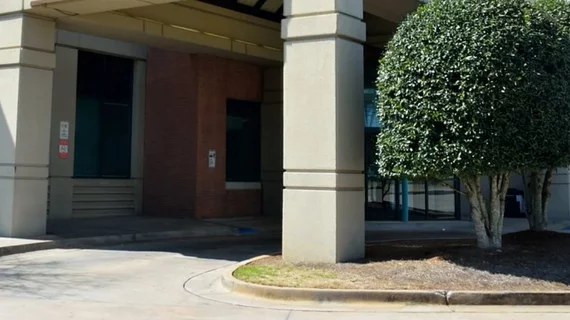Hospital converts main entrance into COVID x-ray room
Possibly setting a precedent that could be followed in many U.S. hospitals, a medical center in Reading, Pennsylvania, has set up a curbside radiography service specifically for COVID-positive and -suspected patients.
Penn State Health St. Joseph opened the service May 4, saying it took the measure as part of its ongoing efforts to ensure patient safety during the present public-health crisis, according to Penn State Health News.
The imaging has to be ordered by a clinician, and the service line is limited to chest x-rays, but the facility has clearly thought the process through with both COVID patients and healthcare workers in mind.
No appointments are needed, staff are standing by to guide the procedure on demand, and the imaging area really is right off the curb—in what used to be the medical center’s main entrance.
“This unique service mitigates exposure to the virus to the population within the hospital and conserves personal protective equipment and cleaning supplies,” Lynn Kaufman, the institution’s director of imaging, tells the news outlet. “The location also makes it convenient to our drive-through COVID-19 testing and curbside pharmacy pickup should those services be needed.”
Click here to see a photo of the temporary room.

